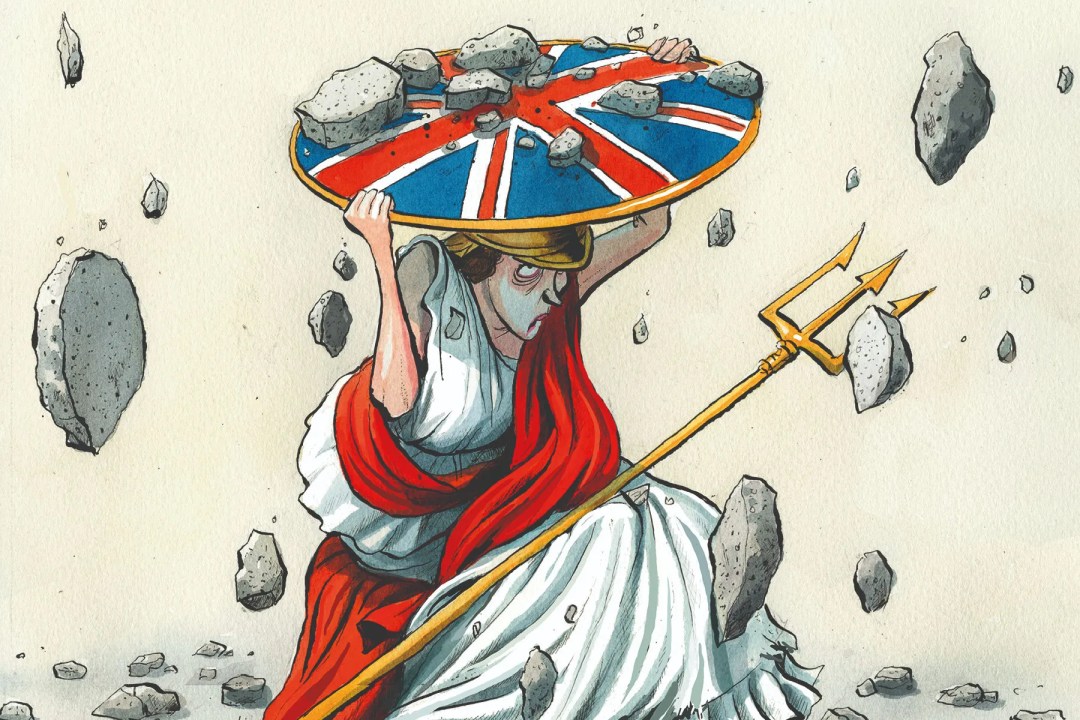Another day, another flurry of bad news on the fallout from October’s Budget. The BDO Monthly Business Trends indices – which pull together the results of all the main UK business surveys – show that confidence has fallen to the lowest level in almost two years, with output and employment down, and only inflation up.
Meanwhile, KPMG and REC have published their UK Report on Jobs, which reveals a sharp fall in permanent recruitment in November. It seems many firms are reassessing their ‘staffing needs’ amid reports of a growing number of redundancies.
It is a reminder that Labour’s first Budget was certainly grim. But just as the new government was rightly criticised this summer for banging on about the ‘worst set of circumstances since the Second World War’, are we now at risk of overplaying the effects of the Budget? Does all this gloom – and the assumption that Britain is resigned to another five years of stagnation – risk doing even more damage now?
For a start, it would be wrong to attribute all the weakness in business confidence to the Budget. Similar surveys (notably the PMI indices) show that conditions have deteriorated markedly in the rest of Europe too. In fact, the prospects for the UK still look relatively bright, especially compared to Germany, where the economy has stagnated for years, and to France, where the government has failed to pass any Budget at all.
Moreover, the UK surveys of business and household confidence typically show that respondents are less worried about their own prospects than those for the economy as a whole. Underlying confidence may therefore be more robust than the headlines suggest.
The GfK survey of consumer confidence is a good example. The December results are due this Friday and will be worth watching. But the November poll showed that households are far less anxious about their personal finances than they are about the ‘general economic situation’.
This makes sense. Despite the tax increases in the Budget, real household incomes are likely to recover further, unemployment remains low, and household and corporate finances are in decent shape.
We have also yet to see any benefits from many other measures announced in October. The Budget increased public spending by about two per cent of national income, half of which was financed by the tax increases, but the other half by an increase in borrowing. This additional fiscal stimulus should provide at least some uptick for the economy in 2025.
The Office for Budget Responsibility (OBR) has been reluctant to factor in a bigger boost from the planned increase in public investment until there are more details on how the money will be spent. But perhaps there is some good news still to come here too.
In the meantime, the signs of weakening in the labour market – and especially in wage growth – should at least encourage the Bank of England to keep cutting interest rates. The most likely scenario is a series of ‘gradual’ cuts, perhaps a quarter point every quarter, alongside each quarterly Monetary Policy Report. But the Bank could support confidence and activity by lowering rates more quickly.
And there is another factor being overlooked: Labour still has a large parliamentary majority and years to run before the next general election is due. So it is certainly not too late for the new government to improve its communications on the economy.
The challenge is to sell the story that ‘repairing the public finances’ was a necessary condition for a sustained recovery, and that the large tax hikes in the Budget were a ‘one-off’.
Of course, there is no shortage of things that could go wrong
So far, this has been an abject failure, summed up in the mixed signals about the chances of further tax rises. But the government does finally seem to have landed on a more credible position – that there is no plan for more tax rises before the next general election, barring ‘unforeseen’ circumstances.
Of course, there is no shortage of things that could go wrong, especially if the blows to business, consumer and investor confidence fuel a doom loop of weaker economic activity, lower tax revenues, and higher borrowing costs.
The increases in taxes and other costs in the Budget are also not the only headwinds. Many businesses are also grappling with the additional burdens of higher minimum wages and new ‘employment rights’. Previous governments have made promises on planning reform and housebuilding and still failed to deliver. The impacts of the new energy policies are also highly uncertain.
The upshot is that all may not yet be lost. There is no doubt that the Budget is running some huge risks. But critics of the government need to be wary of repeating the mistake of talking down the economy unnecessarily.








Comments